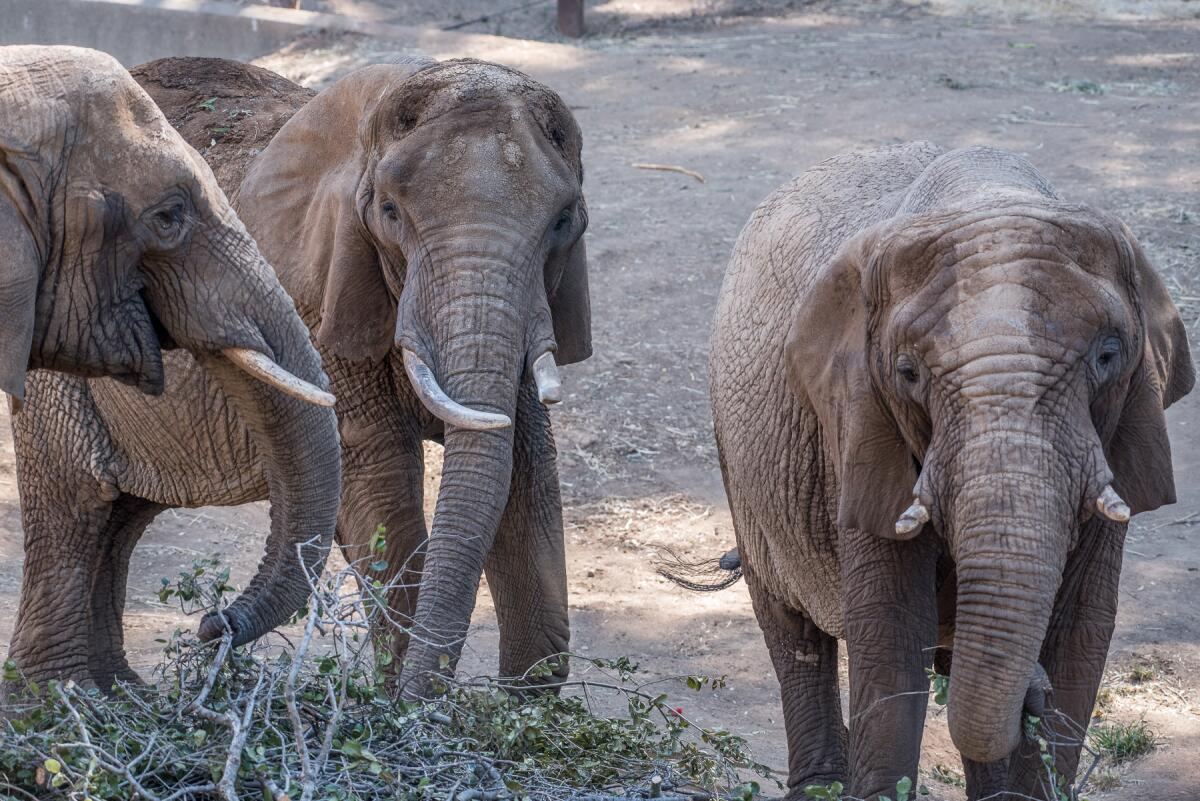This Bay Area zoo is shutting down its elephant exhibit. Could more California zoos be next?

- Share via
California may be the most populous state, but it will soon be losing one very big resident.
After 20 years living in the Oakland Zoo, the park’s last remaining African elephant, Osh, will be relocated to the Elephant Sanctuary in Tennessee later this year, the zoo announced in a press release.
There is hope that once Osh, a male, arrives at the sanctuary, the 30-year-old pachyderm will reunite with Donna, the zoo’s last remaining female African elephant that was relocated there last year.
The decision to move Osh was made after consultation with the Assn. of Zoos and Aquariums’ African Elephant Taxon Advisory Group, the zoo said. It was decided that moving Osh to the sanctuary was best for his well-being and would provide him with more social opportunities.
The zoo estimates it will take about 40 hours to transport the 15,000-pound, 11-foot-2-inch-tall elephant to his new home about 60 miles southwest of Nashville later this year.
Animal activists are claiming victory with the zoo’s announcement and the elephant exhibit’s closure, saying it supports arguments that keeping elephants in captivity causes the animals to suffer and die prematurely.

Last year, In Defense of Animals, an animal protection organization, identified the Los Angeles Zoo and Botanical Gardens as the worst zoo for elephants in the U.S. The zoo has a 6.65-acre elephant exhibit housing its two Asian bull elephants, Billy and Tina, who have been there since 1989 and 2010, respectively.
“Due to his constrained, unnatural existence in a puny-sized exhibit, Billy’s body and mind further declines each passing year,” In Defense of Animals wrote on its website.
In May, the L.A. City Council asked the zoo to examine how it cares for its elephants and identify any changes needed after two of its Asian elephants, Jewel and Shaunzi, had to be euthanized within a year.
L.A. Zoo officials said that their elephants receive the highest level of care and that euthanization is only done after they have already exhausted every other option.
They decided to euthanize Jewel, 61, because her “quality of life was continuing to decline,” while Shaunzi, 53, was euthanized because of “her age [and] past medical history [and] her inability to right herself with supportive efforts to raise her,” zoo officials said.
An L.A. Zoo spokesperson said in a Wednesday statement that the decision to euthanize the elephants “was based on poor prognosis and acute decline in health stemming from age-related medical conditions.”
Since 1991, dozens of zoos have closed their elephant exhibits, including the San Francisco Zoo, Santa Barbara Zoo, Sacramento Zoo and Monterey Zoo.
More to Read
Sign up for Essential California
The most important California stories and recommendations in your inbox every morning.
You may occasionally receive promotional content from the Los Angeles Times.











